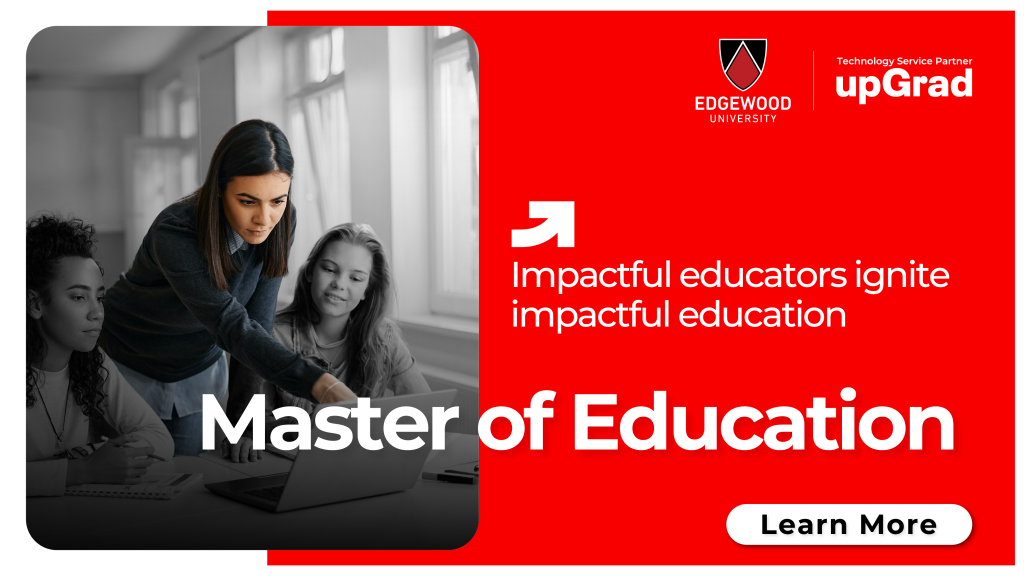Pursuing a Doctor of Education (Ed.D.) is indeed a transformative journey, but students in these programs face specific academic, personal, and professional challenges.
This blog will discuss the most prominent problem of practice examples in Ed.D. degrees and suggest ways in which students can overcome it. It will also provide them with suggestions on how to make such journeys successful and maximize their earning potential, such as ascending to positions like provosts, where they can earn a yearly average base salary of CAD 218,981.
Ed.D Problems of Practice: Real Challenges Students Face and Solve
Ed.D. students focus on solving real-world issues that arise in educational institutions – experts also refer to them as problems of practice. These are persistent and complex challenges that administrators and educators face in schools, learning institutions, and colleges.
Bridging the Gap Between Classroom Practice and Policy
Bridging the gap between policies and classroom practices is one of the most prominent problems of practice examples in Ed.D. Many Ed.D. students examine the disconnect between educational policies and how the stakeholders execute them in classrooms. Policies may appear to be good on paper, but they can become too rigid or impractical when applied in reality. For instance, standardized testing mandates could restrict creativity or overlook the learning needs of specific students.
Improving Equality in Educational Outcomes and Access
Educational equality is a significant problem of practice, especially in diverse and/or underserved school communities. Ed.D. students often examine gaps in students’ achievements based on factors such as race, gender, socioeconomic status, and/or linguistic background. They use field research and data analysis to explore strategies such as inclusive curriculum designs, equitable resource distribution, and culturally responsive teaching.
Enhancing Job Satisfaction and Teacher Retention
Teacher turnover is one of the widespread issues that affect the performance of students and the stability of schools. Many Ed.D. candidates investigate the reasons why teachers leave their jobs, such as burnout, limited career advancement opportunities, and a lack of support, and develop solutions to help schools retain their best talent.
Strengthening Instructional Leadership in Schools
Many Ed.D. students who work in administrative roles seek ways to enhance their instructional leadership, which in turn can improve academic performance. Instead of emphasizing only operations, the challenge in this specific context lies in developing school leaders who are capable of guiding, supporting, and mentoring teachers in enhancing instructions.
Integrating Technology Meaningfully in Classrooms
Most schools these days have access to technology, but many still struggle to utilize these tools meaningfully, thereby offering students a better learning experience. Ed.D. students often explore ways to bridge the gap between possessing digital tools and technology and using them to create student-centered and engaging experiences.
Also Read: Will an Online Degree in Education Help You Enter EdTech in Canada?
Tips for a Successful Ed.D Journey
Students who wish to be successful in their Ed.D. programs and navigate the education challenges that arise need to focus on crucial areas, such as time management, prioritizing self-care, building a strong support network, and developing the necessary writing and research skills.
| Core Area | Specific Factors to Focus On |
| Program Planning and Selection |
|
| Building a Support System |
|
| Maintaining Well-Being and Balance |
|
| Effective Study Habits and Time Management |
|
| Dissertation and Afterwards |
|
Also Read: Boost Your Teaching Career in Canada with an M.Ed. in Educational Leadership
How upGrad’s Ed.D Program Helps You Navigate These Challenges
A great way to address the educational challenges that arise in Ed.D. programs is to select the right ones, and for that, students can always rely on the online Master of Education (M.Ed.) and dual degree courses offered through upGrad. Educators have designed these programs for future educators, implying that they are ideally suited to address the challenges that students in such programs might face otherwise.
- Dual Master of Education (M.Ed.) and Doctor of Education (Ed.D) Degree Program, Edgewood University
- Doctor of Education (Ed.D), Edgewood University
- Master of Education (M.Ed.), Edgewood University
🎓 Explore Our Top-Rated Courses in Canada
Take the next step in your career with industry-relevant online courses designed for working professionals in Canada.
FAQs on Common Challenges Faced by Ed.D Students
Q: How do I choose a strong topic for my Ed.D dissertation?
Ans: To select a strong topic for their dissertation, students must first choose a topic that they are passionate about and then ensure they can do it justice.
Q: Can I complete an Ed.D while working full-time in Canada?
Ans: Yes, in Canada, students can work full-time and still complete an Ed.D. program, as there are various programs designed specifically for working professionals.
Q: What kind of support do Ed.D students receive during research in Canada?
Ans: Ed.D. students in Canada receive various forms of support during their research, including supervision, practical and academic resources, and financial aid.
Q: What research methods are most commonly used in Ed.D programs?
Ans: Ed.D. programs typically employ both quantitative and qualitative research methods, with an emphasis on practical solutions and applied research relevant to educational settings.
Q: Does upGrad offer help with selecting a research advisor or topic?
Ans: upGrad provides its Ed.D. students support and guidance in choosing a research topic and an advisor who can guide them in working on it.





















